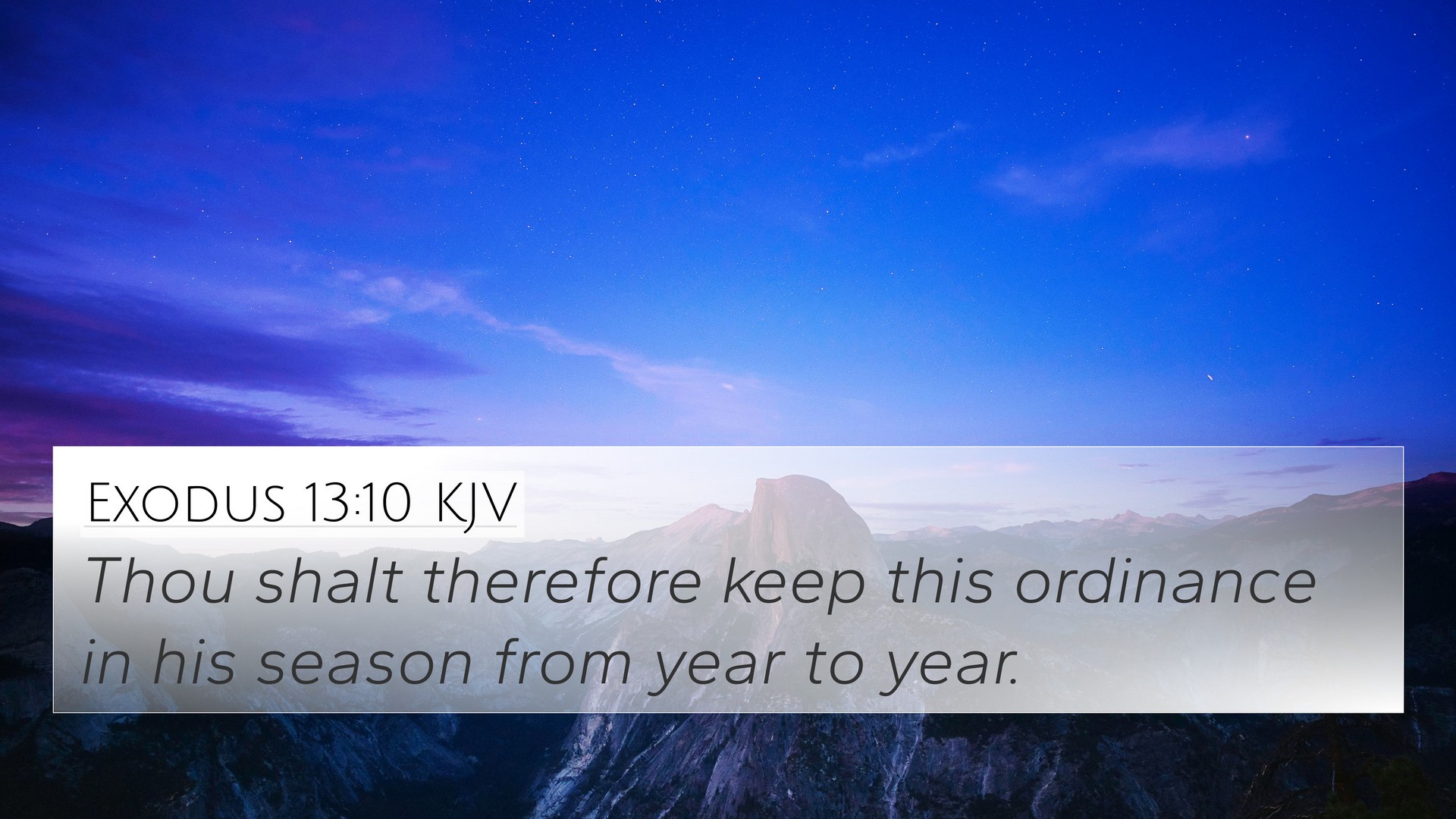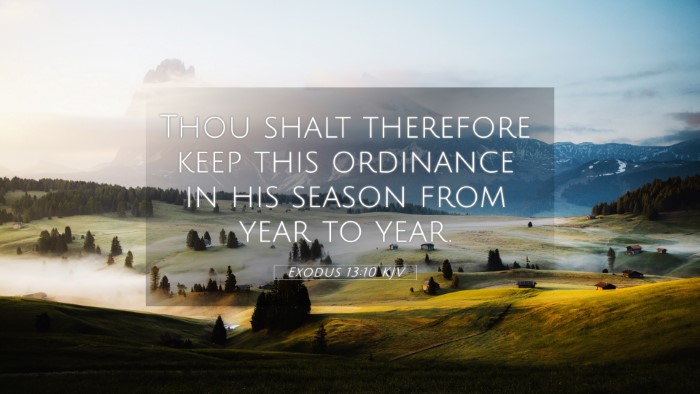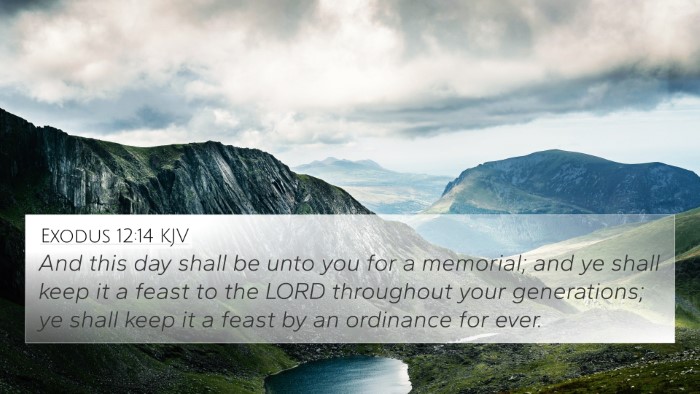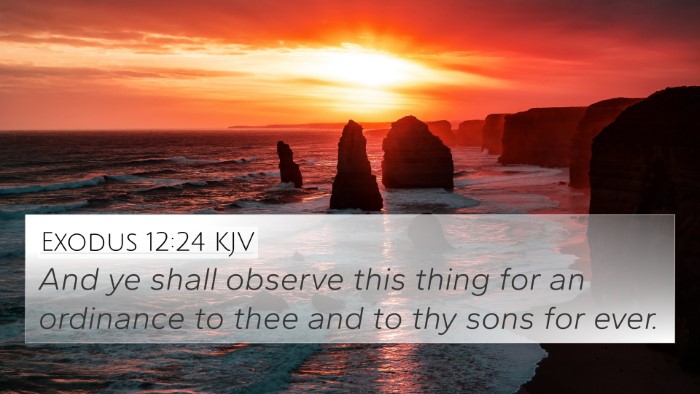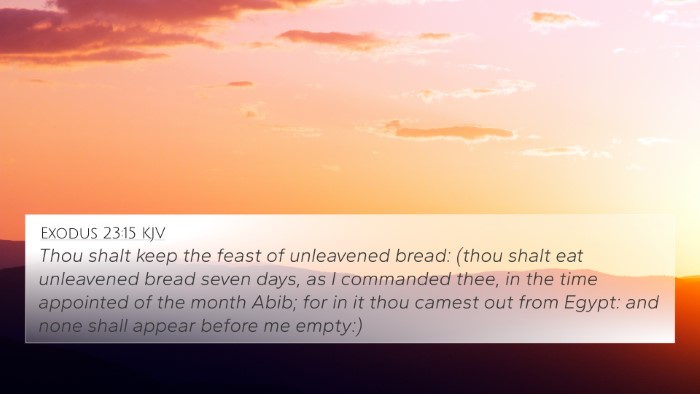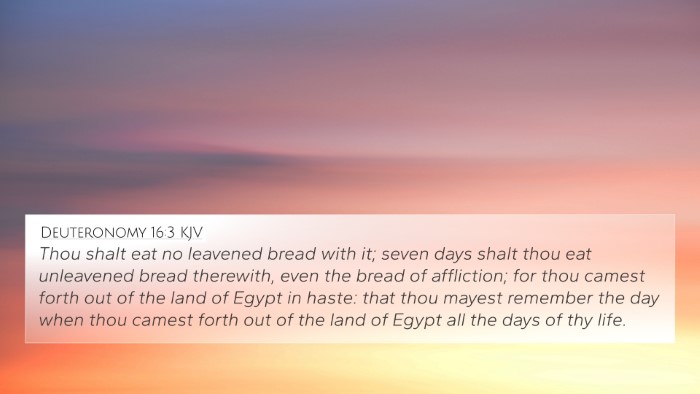Understanding Exodus 13:10
Exodus 13:10 states, "You shall therefore keep this ordinance in its season from year to year." This command is part of the instructions God provided to the Israelites regarding the Passover and their subsequent redemption from Egypt. This verse emphasizes the importance of remembrance and obedience in the context of God's deliverance.
Meaning and Significance
The directive to "keep this ordinance" highlights several key themes:
- Remembrance of God's Deliverance: The Israelites were to commemorate their escape from bondage in Egypt through the observance of the Passover. This act of remembrance serves as a pivotal moment in their history.
- Obedience to Divine Command: By following God's instruction, the Israelites affirm their covenant relationship with Him. Obedience is a recurring theme throughout the Scriptures.
- The Importance of Tradition: Establishing yearly observances fosters a sense of community and identity among the Israelites, reminding them of their heritage and God’s faithfulness.
Commentary Insights
Insights from various public domain commentaries shed light on this verse:
- Matthew Henry: He emphasizes the necessity for believers to remember the great things God has done. Keeping the ordinance serves both as a reminder to future generations and instills a culture of gratitude and awareness of God’s mercy.
- Albert Barnes: Barnes points out that the observance of such ordinances is critical in maintaining a link between the past and the present. It ensures that the history of God's acts is passed down, preventing the people from forgetting their origins.
- Adam Clarke: Clarke elaborates that the command not only pertains to the physical act of observing the Passover but underlines a deeper spiritual significance. This observance is aligned with the idea of personal and communal sanctification through God's redemptive acts.
Bible Verse Cross-References
Exodus 13:10 connects to several other scriptures that deepen our understanding of its significance:
- Deuteronomy 16:1-3: These verses reinforce the observance of Passover as a time to remember the exodus from Egypt, emphasizing its importance in the community.
- Luke 22:15: In the New Testament, Jesus references the Passover meal, linking it to His impending sacrifice, showcasing continuity between the Old and New Testaments.
- 1 Corinthians 5:7-8: Paul refers to Christ as our Passover, confirming the fulfillment of the Passover symbolism in Jesus' death.
- Joshua 4:6-7: Memorial stones from the Jordan River serve as a reminder of God's faithfulness, akin to the observance of the Passover.
- Hebrews 11:28: This verse speaks of faith associated with the Passover, demonstrating the connection between faith and obedience to God's commands.
- Revelation 1:8: God's eternal nature is highlighted here, tying back to His promise of deliverance and care for His people.
- Romans 6:3-4: This passage discusses baptism as a form of remembrance of Christ's death and resurrection, paralleling the observance of the Passover as a remembrance of deliverance.
Thematic Connections
This verse invites us to explore various themes within the Bible:
- Faithfulness: The call to remember God's acts reflects His faithfulness and the expected faithfulness of His people in response.
- Community Identity: Observances like Passover are essential for maintaining the collective memory and identity of God's people throughout generations.
- Redemption: The theme of redemption permeates the Bible, starting with the Israelites’ liberation from Egypt and culminating in the ultimate redemption achieved through Christ.
Conclusion
Exodus 13:10 serves as a poignant reminder of God's deliverance and the importance of maintaining an active remembrance of His works in our lives. It is not just an ancient ordinance but a timeless principle for believers today to reflect on God's faithfulness and to engage in communal observances that honor His covenant.
By exploring the connections between this verse and others, believers can gain deeper insights into the themes of faithfulness, redemption, and community in the Scriptures.
